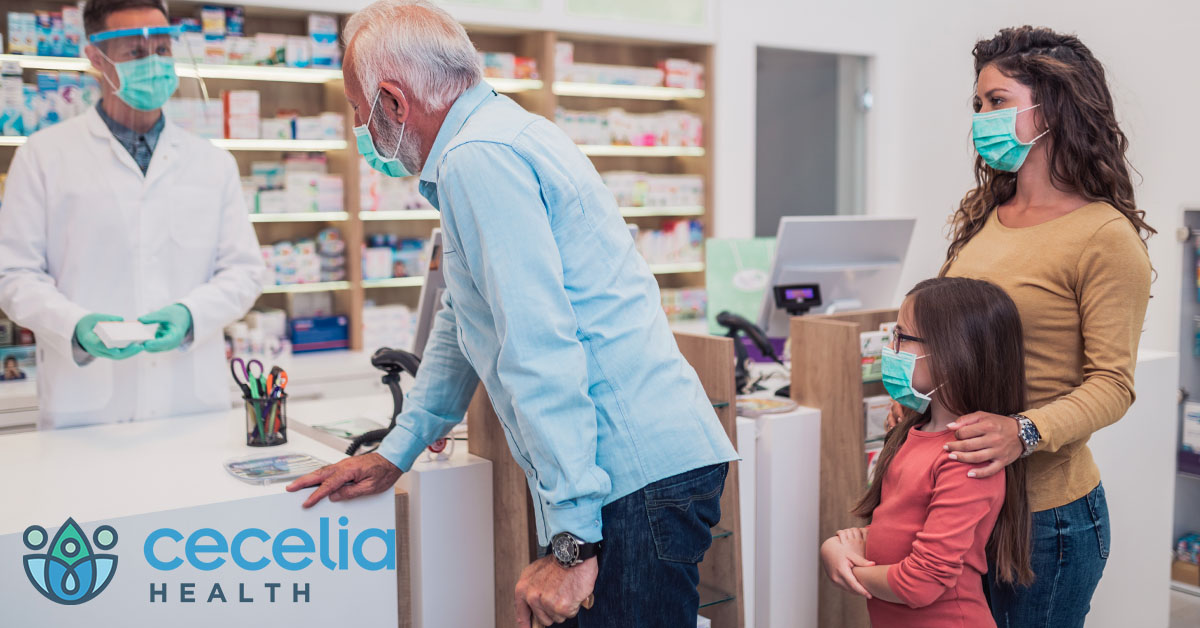COVID-19 has established itself as pervasive through almost every area of life for patients. Practicing social distancing as a measure to protect against the virus presents new ways of life, particularly in adhering to their medication schedules. We’ll walk through a couple ways in which COVID-19 and social distancing has presented new challenges or further highlighted existing ones in medication adherence.
Mail Orders for Medication
Mail orders have been an option for patients well before the era of COVID-19. However, with the increased desire to avoid public places, like pharmacies, patients will have begun utilizing mail orders even more to have their medications delivered right to their homes.
Due to the pandemic, mail and delivery services face increasing demand as other goods and products besides medications are being delivered to consumers through mail orders instead of being bought at stores. This further exacerbates a problem inherent to all delivery services: lost packages and delayed orders. A lost or delayed package can be annoying at best, but in terms of essential and life-saving medications, this can be extremely dangerous for patients.
Another concern regarding mail order medications is temperature control during transport. Medications like insulin require storage below room temperature, somewhere between 36°F and 46°F. Insulin manufacturers have already developed methods to keep insulin below room temperature in transport, even in the context of mail orders, but the previous issue of delayed packages calls into question how long these methods can keep insulin at the appropriate temperature.
Other medications, like those used in blood thinning for cardiovascular diseases, are stored at room temperature. Many regions of the U.S. are subjected to extreme weather conditions which may pose a more significant problem as medications spend more time in transit.
Medication manufacturers must keep these issues in mind as they begin or continue to utilize mail order services. Potential solutions include:
- Partnering with delivery services solely dedicated to mail order medications and that guarantee quick delivery times for patients
- Ensure all medications that are susceptible to harm due to varying temperature have the appropriate temperature controls in their packaging that are designed to last beyond the expected delivery time
- Maintain consistent communication with patients and their providers to have medications refilled well before they run out in case of delayed or lost mail orders
The benefit of mail orders is that they are already established and have safeguards in place for protecting medications that are delivered. COVID-19 requires us to be even more vigilant in these safeguards and further improve them to match the current situation.
Extraordinary Circumstances
COVID-19 will have impacted patients not just in medication adherence, but in almost every other aspect of their lives. Psychologists have described living through the pandemic as experiencing grief. We have lost our way of life and the routines that have made us feel comfortable and secure.
In addition, patients may also be working in an environment that exposes them to the virus, or they may have lost loved ones. In the face of living through such trauma, they may fail to take medications as prescribed or have them refilled.
We can see that COVID-19 has impacted patients physically, mentally, and emotionally, but one other devastating impact has been to their finances. Unemployment rates are at an all-time high and they may have lost their jobs or had their hours reduced, resulting in a change in insurance status. Many may be forced to forego paying for medication to pay for rent or food for their families.
Now more than ever, patient services should be integrated and delivered in a holistic model that recognizes patients’ lived experiences. Medication manufacturers can:
- Designate staff to address patient queries about payment as they transition between different types of insurance
- Post online guides and have staff ready to refer patients to financial resources, mental health services, and general COVID-19 information
The statement of “we are in unprecedented times” may seem a little overused at this point, but that doesn’t disqualify how accurate the phrase is. Patients will be facing situations that they didn’t think possible and as a result, medication adherence will fall.
It is up to different health sectors, including medication manufacturers, to think of creative and collaborative solutions to address these new challenges in medication adherence
